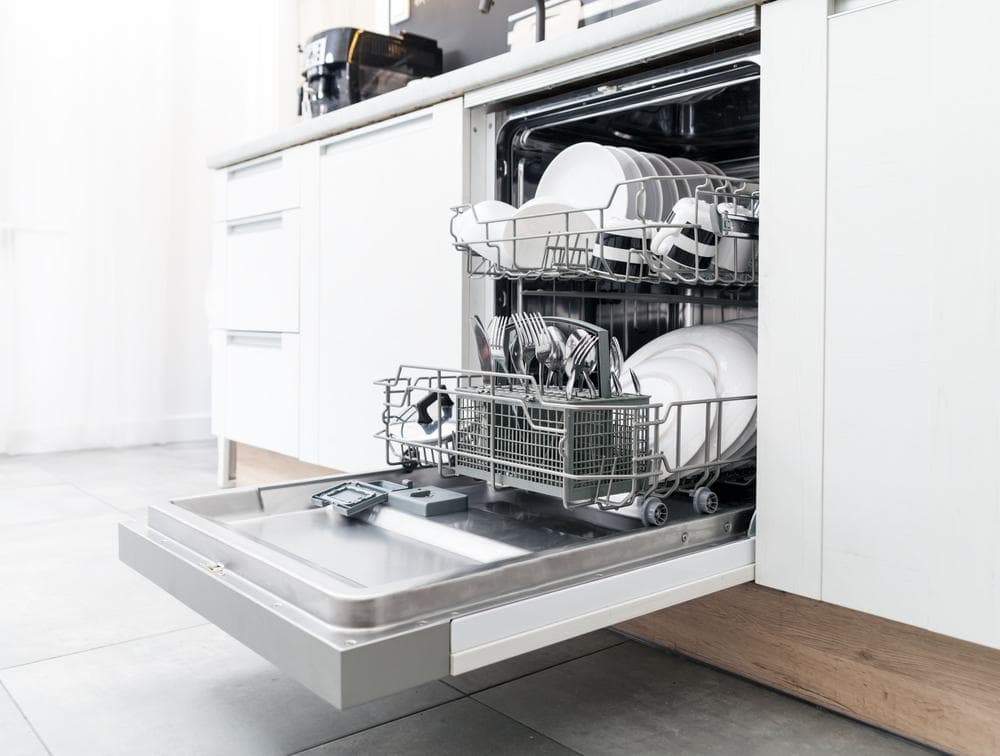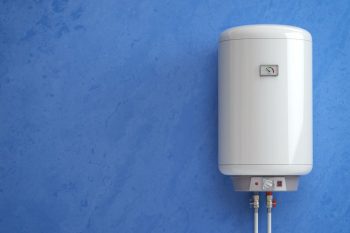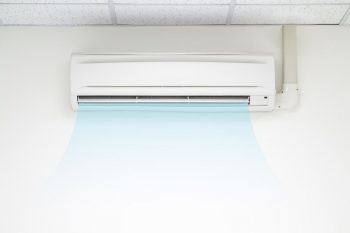
In a world where sustainability is becoming increasingly important, many of us are looking for ways to reduce our environmental impact. One significant way to do so is by choosing energy-efficient appliances for our homes. Among these, dishwashers are a crucial focus as they are commonly used appliances that can consume a considerable amount of energy and water. But what is the most efficient dishwasher? Let’s delve into this topic and explore the factors that contribute to dishwasher efficiency.
The most efficient dishwasher is one that is Energy Star certified, uses less water and electricity, and has energy-saving features. Some of the top-rated energy-efficient dishwasher models currently available in the market include Miele G 5892 SCVi SL, Fisher & Paykel DD24DTX6I1, and Blomberg DWS 51502SS Slim Tub, Top Control Dishwasher. However, the efficiency of a dishwasher also depends on how it is used, such as running full loads, choosing the right cycle, and regular maintenance.
Key Factors Influencing Dishwasher Efficiency
Dishwasher efficiency is influenced by several factors:
- Size of the dishwasher: Larger dishwashers require more energy to power the motor and heat a larger volume of water. Compact or slim dishwashers can help reduce energy consumption for smaller households or those with fewer dishes to clean regularly.
- Age of the dishwasher: Older models tend to be less energy-efficient compared to newer models, which have benefited from technological advancements, energy-saving features, and improved insulation.
- Energy efficiency rating: Dishwashers with an Energy Star certification meet strict energy-saving guidelines and typically use less water and electricity to clean dishes effectively.
- Wash cycle selection: Different wash cycles have varying energy and water consumption levels. Choosing the appropriate cycle for the load can help optimize efficiency.
- Water temperature: The energy required to heat the water significantly impacts dishwasher efficiency. Using a lower temperature setting or a dishwasher with a built-in water heater can help reduce energy consumption.
- Load size: Properly loading the dishwasher and running it with full loads can improve efficiency by reducing the number of cycles needed to clean all dishes.
- Drying performance: Air-drying dishes instead of using the heat cycle can significantly reduce dishwasher power consumption.
- Maintenance and proper use: Ensuring proper installation, regular maintenance, and following the user manual’s guidelines for loading and operating the dishwasher can help optimize its efficiency.
Top Energy-Efficient Dishwashers
Based on the search results, here are some of the top-rated energy-efficient dishwasher models currently available in the market:
- Miele G 5892 SCVi SL
- Fisher & Paykel DD24DTX6I1
- Blomberg DWS 51502SS Slim Tub, Top Control Dishwasher
- Summit DW18SS4
- Samsung DW80R9950UT
- Bosch SGX78B55UC/13
- Hisense HUI6220XCUS
- Beko DUT25401X
- Bosch 300 Series SHE53C85N
These models are known for their energy efficiency and reduced water consumption. Most of them are Energy Star certified, which means they meet specific standards for energy efficiency and water usage.
The Role of Water Consumption
Water consumption plays a crucial role in the efficiency of a dishwasher. Modern dishwashers, especially those with Energy Star certification, are designed to use water more efficiently than handwashing dishes. Water quality is another important factor that affects the efficiency of a dishwasher. Poor water quality can lead to reduced efficiency, as hard water can cause the dishwasher to use more energy to heat the water, resulting in higher energy bills.
The Impact of Size and Capacity
The size and capacity of a dishwasher impact its efficiency in several ways. Larger dishwashers require more energy to power the motor and heat a larger volume of water, while smaller dishwashers consume less energy. Fully loading the dishwasher maximizes its energy efficiency by efficiently utilizing water, detergent, and energy required to clean the dishes.
The Influence of Cycle Time and Type
The cycle time and type of a dishwasher can significantly affect its efficiency. Longer cycles ensure thorough cleaning but can slow down the dishwashing process, while shorter cycles may be faster but compromise cleaning quality. Energy-efficient dishwashers often have longer cycles to minimize energy and water usage.
Practical Tips to Optimize Efficiency
To optimize the efficiency of your dishwasher, follow these practical tips:
- Use the right detergent: High-quality dishwashing detergents and rinse agents can improve cleaning performance.
- Don’t pre-rinse dishes: Modern dishwashers are designed to handle food particles, so pre-rinsing is unnecessary and wastes water.
- Load dishes properly: Proper placement of dishes ensures better water circulation and cleaning results. Stack dishes neatly in the dishwasher trays.
- Run full loads: Only run the dishwasher when it’s full to save water and energy.
- Choose the right cycle: Select energy-saving or sensor cycles that adjust water use based on the load’s needs.
- Use air-dry options: Choose air-dry cycles that use unheated air to dry dishes, or stop the dishwasher just before the dry cycle and open the door to let dishes air-dry.
- Maintain your dishwasher: Regular maintenance and cleaning can improve the dishwasher’s performance.
- Adjust water heater temperature: Lower the temperature of your water heater thermostat to 120 degrees to save energy.
- Upgrade to an energy-efficient model: If you have an older dishwasher, consider upgrading to a newer, ENERGY STAR certified model with better water and energy efficiency.
In conclusion, dishwasher efficiency is influenced by a variety of factors, including size, age, energy efficiency rating, wash cycle selection, water temperature, load size, drying performance, and maintenance. By considering these factors and using the dishwasher efficiently, you can reduce energy and water consumption, ultimately saving money and resources.
Frequently Asked Questions
What is an Energy Star certification?
Energy Star is a program run by the U.S. Environmental Protection Agency and Department of Energy that promotes energy efficiency. Products with an Energy Star label meet strict energy-efficiency guidelines set by these agencies.
How often should I perform maintenance on my dishwasher?
It’s recommended to perform maintenance on your dishwasher once every month. This includes cleaning the filter and spray arms, and running a cleaning cycle with a dishwasher cleaner to remove any build-up of grease and limescale.
How does hard water affect dishwasher efficiency?
Hard water contains high levels of minerals like calcium and magnesium. These minerals can build up inside the dishwasher, affecting its performance and efficiency. They can also leave spots and film on dishes. Using a water softener or a dishwasher detergent designed for hard water can help.
What is the average lifespan of a dishwasher?
The average lifespan of a dishwasher is around 10 years. However, this can vary based on the model, usage, and maintenance.
Is it more efficient to hand wash dishes or use a dishwasher?
According to the Environmental Protection Agency (EPA), using a dishwasher is more efficient than hand washing. An Energy Star certified dishwasher can save nearly 5,000 gallons of water and $40 in utility costs each year compared to hand washing.
How does the size of a dishwasher affect its efficiency?
Larger dishwashers require more energy to power the motor and heat a larger volume of water. On the other hand, compact or slim dishwashers can help reduce energy consumption, especially for smaller households or those with fewer dishes to clean regularly. However, it’s essential to fully load the dishwasher to maximize its energy efficiency.
What are the benefits of upgrading to an energy-efficient dishwasher?
Upgrading to an energy-efficient dishwasher can help reduce your energy and water consumption, leading to lower utility bills. It can also offer better performance, with features like sensor cycles that adjust water use based on the load’s needs. Furthermore, it can contribute to environmental conservation by reducing your carbon footprint.












